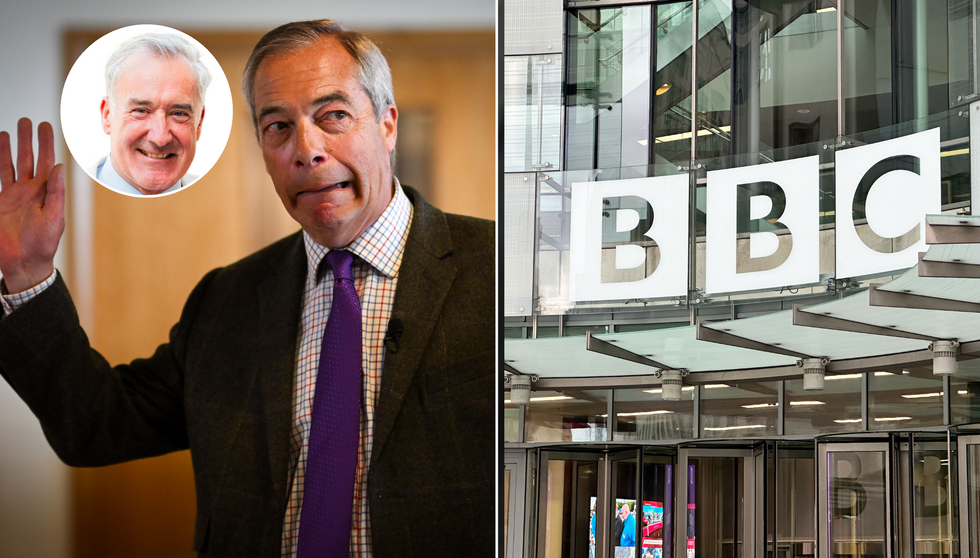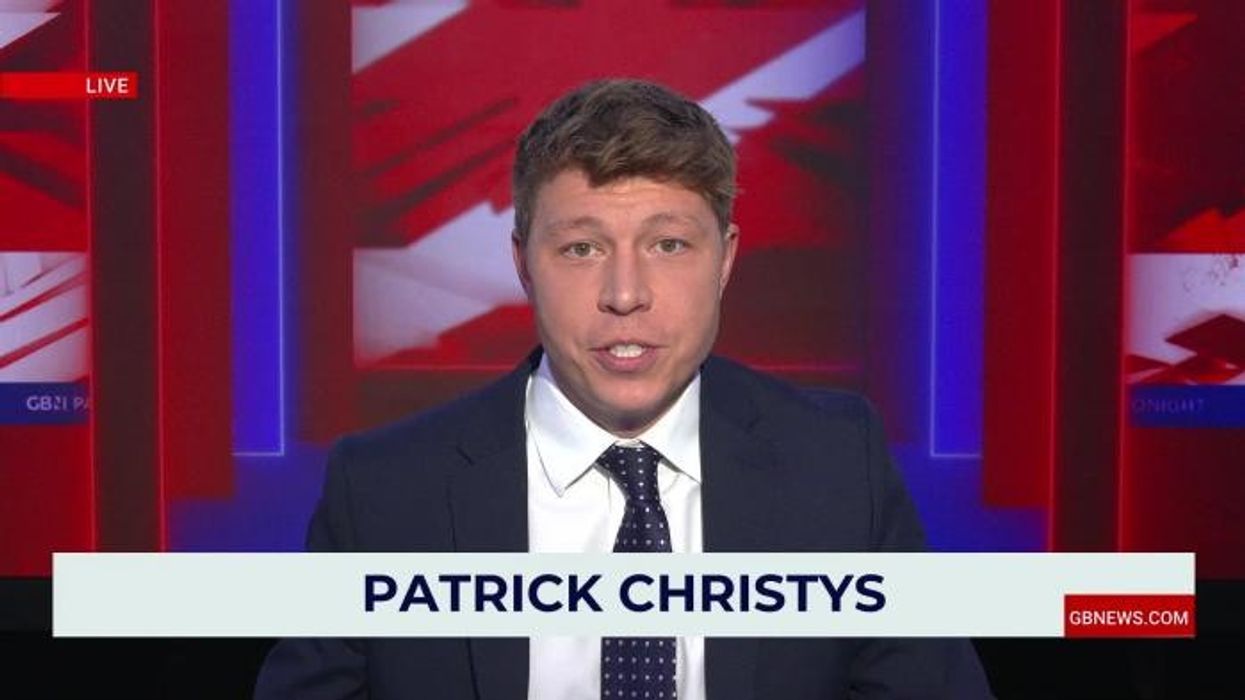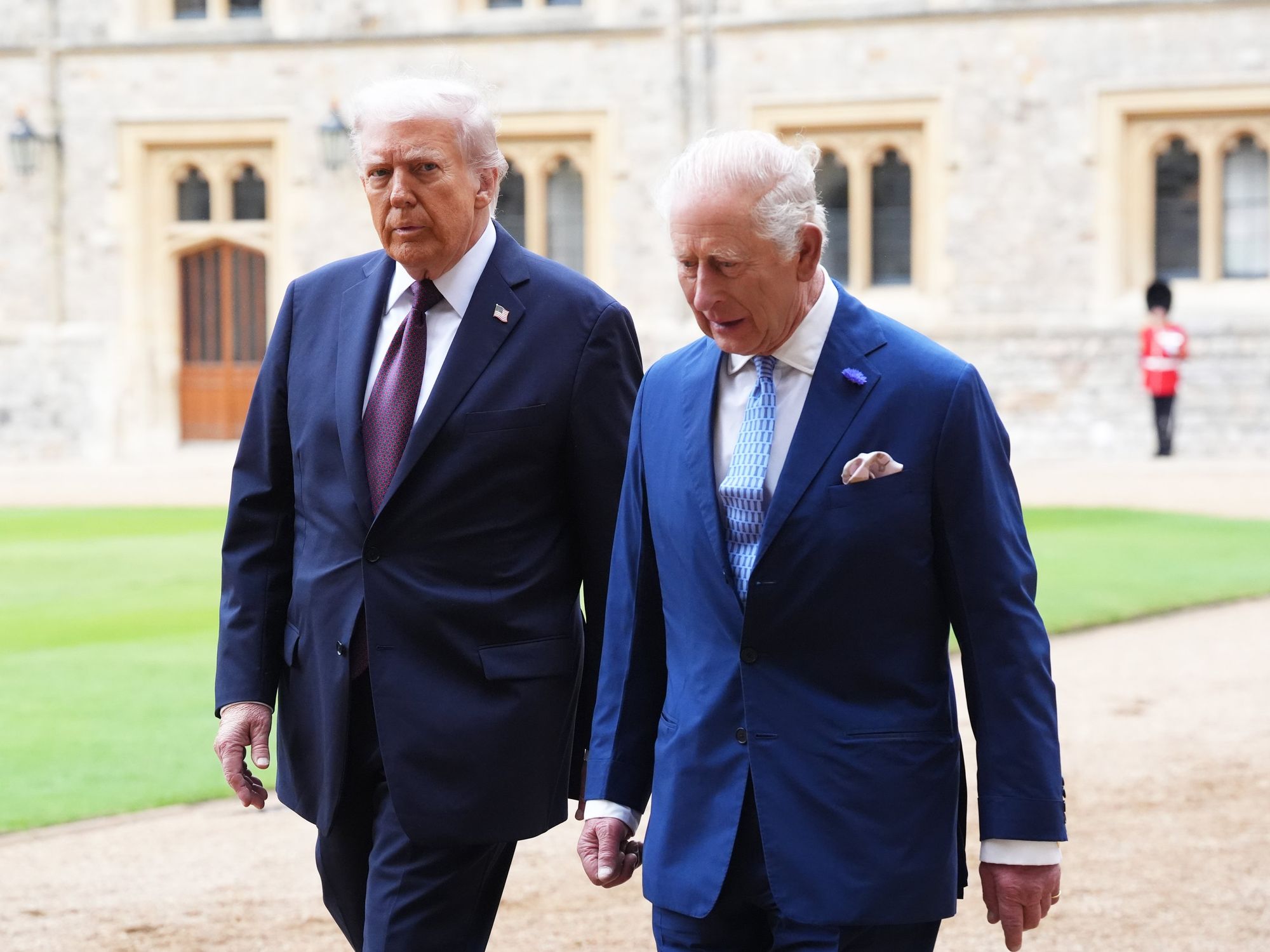Watching the BBC jump through hoops to win back Reform voters gives me intense schadenfreude - Colin Brazier
OPINION: The BBC is right to act — but wrong to think that the situation can be salvaged
Don't Miss
Most Read
Trending on GB News
So, the BBC wants to curry favour with Reform voters. According to reports this week, the Corporation is drawing up plans to deal with what it describes as a breakdown in trust between the nation’s biggest provider of news, and - what the polls have repeatedly confirmed - is now the country’s largest political party.
The BBC is right to act. But wrong to think that the situation can be salvaged. The blunt truth is that millions of Reform supporters (and, for that matter, many Tories too) see the state broadcaster as the embodiment of our prevailing culture of national self-loathing.
In fact, I would go further. For many people on the Right, the BBC – more than any other single institution – has been an engine of their disenchantment and ideological disaffection.
A recruiting sergeant for Reform itself. From the endless woke-fest of Doctor Who, to the sneering disdain of Radio 4’s Today program, every arm of its output acts as a daily reminder that the BBC is Britain’s godhead of group-think.
No part of the Corporation is immune to the reflexive urge to turn license-fee-funded words and pictures into a sociology lecture.
It is there in the DEI hires of BBC Sport. In the comically historical miscasting of black actors in costume dramas like Wolf Hall. In its one-sided depictions of the countryside (serving the agenda of activists like Chris Packham).
But it is in the provision of news that the BBC has done most to allow trust to be eroded. The problem is especially bad online. This week, for instance, the BBC's deep-rooted hostility to its twin bogeymen of Trump and Netanyahu was painfully apparent.
On the BBC website, it described the events of October 7th - when hundreds of Israelis were murdered, burned alive and raped - as a "massacre". And a massacre it was. But the quotation marks? That's a syntactical device to show that a fact is contested. Was the BBC really giving credence to Islamists who argue that Israel made up stories of atrocities to justify invading the Gaza Strip? Astonishing.

Watching the BBC jump through hoops to win back Reform voters gives me intense schadenfreude - Colin Brazier
|Getty Images
The very same day, within another part of the BBC's sprawling online news empire, the Corporation was subtly blurring editorial lines in pursuit of its favourite prey, Donald Trump.
A headline ran: 'Defiance and anger on the streets of LA'. What? Defiance? That's a word that suggests righteous indignation. Resistance to wrongdoing. It's a hugely loaded way to describe what was happening on the streets of Los Angeles.
It feeds the suspicion that the BBC plays down left-wing violence, while the suspicion always runs always ascribing violent or racist intentions if the demonstrations are right-wing.
The BBC's problem is that viewers, listeners and readers are now attuned to this subtle editorial steering. The skewed story selection. The one-sided cast list of interviewees. They've seen it all before. Five years ago, the Corporation routinely referred to the "mostly peaceful" protests of the now discredited Black Lives Matter movement.
In reality, that bland assertion of pacifism hid the truth. More than a dozen people died, and hundreds of businesses and livelihoods were ruined. The final bill was put at $1bn. But remember: "mostly peaceful".
Where Trump is concerned, the BBC seems to have decided he can do no good. Its correspondents and editors portray him as a pantomime villain. But in the real world, where Reform seeks to situate itself, voters know this is not how life works. Even if you're not a Trumpian, it is possible to accept that he gets some things right. On illegal immigration, for instance, he has reduced crossings on the Mexican border to a trickle.
Worse, after a few weeks of circumspection as Trump's election shock-wave landed, the BBC now no longer holds back. There is a withering tone of contempt for the president in the utterances of the corporation's North American Editor, Sarah Smith. Just as there is for Israel from its International Editor, the derisive Jeremy Bowen.
In that, they are no different from other left-leaning commentators like Emily Maitlis, Jon Sopel or James O'Brien. But there's a key difference. In the unlikely event of me turning on LBC to listen to James O'Brien, I could switch it off again and deprive the station of my custom.
Because of the license fee, the BBC requires no such support. We, as 'customers' (see how those quotation marks work), have no choice. The BBC will be funded, whether we like it or not.
But social media and X, in particular, have changed the nature of that relationship. Nobody has the time to watch all the BBC's output. But others curate it for us online. I don't watch BBC Breakfast. But I was aghast to see clips of the Conservative leader Kemi Badenoch hectored for having the temerity not to have watched the Netflix show 'Adolescence'. One of the presenters even referred to the drama as a 'documentary'.
For many Reform supporters, the BBC has become a lightning rod for fury at a metropolitan mindset which refuses to acknowledge cognitive diversity. The BBC struggles to imagine a Britain where not everyone shares the spotless opinions of Gary Lineker or Dawn French. This is not about geography.
The BBC has tried to break London's media monopoly by setting up outposts in Salford and elsewhere. But simply building a studio up north doesn't alter the way people think. The postcode changes, the woke worldview remains.
In truth, other news providers are home to too many employees who believe their real job is activism, not journalism. But it's the BBC's privileged status that sticks in the craw.
It's a sense of moral and intellectual superiority which sees nothing wrong, to give another, especially egregious example from earlier this year, in inviting the conservative commentator Douglas Murray onto Newsnight. To pre-record an interview with him. Then invite three live guests into the studio to kick him around the park.
I seriously doubt, given its thousands of employees and baked-in prejudices, that any attempt by the BBC to make its output more 'Reform-friendly' could possibly succeed. But the fact that a handful of its most senior executives are, at least, having the conversation is a mark of Nigel Farage's enduring influence on British politics.
The Overton Window - the parameters of 'acceptable' debate - is in motion. Reform's tens of thousands of members are among those giving it an almighty shove. But it is the BBC itself, through its utter unwillingness to see itself as others see it, which has deservedly produced the biggest shift.
More From GB News











